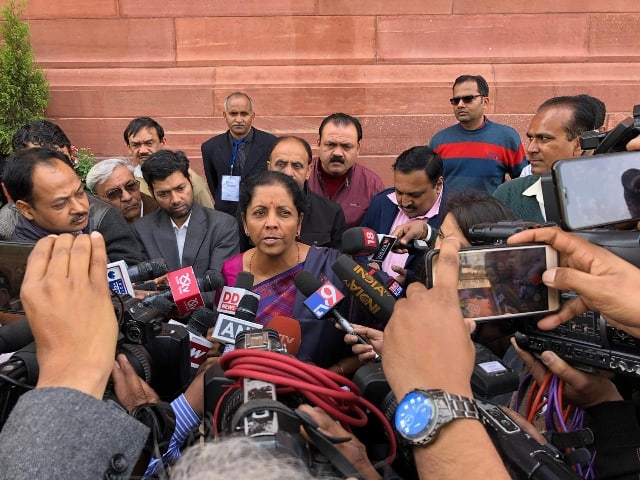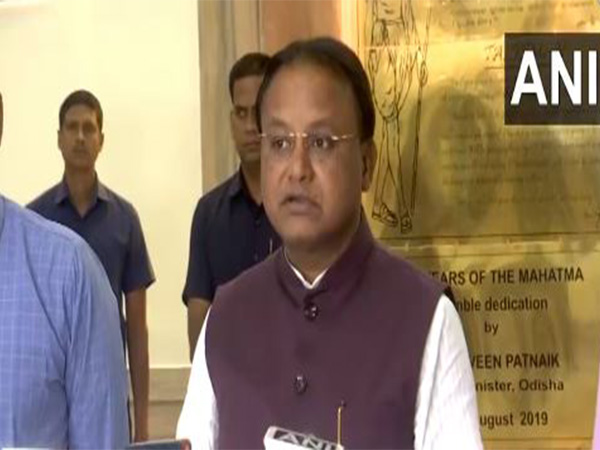
Economic Survey Stresses On Investments
Union Minister for Finance and Corporate Affairs Sitharaman tabled the Economic Survey 2018-19 in Parliament on Thursday. The Survey has strongly emphasised the need to reduce the economic policy uncertainty in the country in order to foster a favourable investment climate. This factor has been termed especially important in the context of the Survey’s recommendations for shifting gears to an investment-driven growth model for the country.
The Survey has stated that higher economic policy uncertainty discourages investment while predictability of policy action and broad consistency in actual policy attract investment. While noting the reduction in economic policy uncertainty in India over the past decade, the Survey has given a set of recommendations to ensure that it stays at low levels in the coming years to ensure growth in investments.
ECONOMIC POLICY UNCERTAINTY IN INDIA
The Survey goes on to say that based on the globally recognised EPU Index, the Economic Policy Uncertainty in India has reduced significantly over the last decade. Economic Policy Uncertainty was the highest in 2011-12, coinciding with the years of policy paralysis. Since then, it has declined secularly, with intermittent increases in between.
The Survey also notes that Economic Policy Uncertainty in India moved in tandem with global uncertainty till 2014. However, it started diverging since early 2015 and seems to have completely decoupled in 2018. In recent times, while the economic policy uncertainty has been increasing across the world, including the US, UK, and China; India’s Economic Policy Uncertainty has been falling.
RELATIONSHIP OF EPU WITH INVESTMENT IN INDIA
The Survey notes that after falling for a decade since 2008, investment activity in India turned the corner since Q1 of 2017-18. Fixed Investment rates that fell from 37 per cent in 2007-08 to 27 per cent in the following ten years, recovered to 28 per cent recently. A secular trend of reducing EPU may have helped to foster the turnaround in investment activity.
The Survey further notes that Economic Policy Uncertainty also correlates strongly with the macroeconomic environment, business conditions and other economic variables that affect investment. Surges in Economic Policy Uncertainty increase the systematic risk, and thereby the cost of capital in the economy. As a result, higher economic policy uncertainty lowers investment, especially because of the irreversibility of investment. Consistent with this thesis, an increase in economic policy uncertainty dampens investment growth in India for about five quarters.
POLICY RECOMMENDATIONS
The Survey notes that unlike generic economic uncertainty, which cannot be controlled, policymakers can reduce economic policy uncertainty to foster a salutary investment climate in the country. In view of the above, it has made the following recommendations for policy changes.
First, policymakers’ must make their actions predictable, provide forward guidance on the stance of policy, and reduce ambiguity/arbitrariness in policy implementation and maintain broad consistency in actual policy.
To ensure predictability, the horizon over which policies will not be changed must be mandatorily specified so that investor can be provided the assurance about future policy certainty. The Government could also use labels such as “Standstill” versus “Ratchet up” to categorize various categories of policies according to the level of commitment about future certainty that it can provide.
Second, “what gets measured gets acted upon.” So, Economic Policy Uncertainty index must be tracked at the highest level on a quarterly basis. The government must also encourage construction of Economic Policy Uncertainty sub-indices to capture uncertainty stemming from fiscal policy, tax policy, monetary policy, trade policy, and banking policy.
Finally, quality assurance of processes in policy making must be implemented in Government via international quality certifications. The adage of “Document what you do, but more critically do what you document!” must be implemented in the government. The process of certification will require training of personnel in following quality assurance processes and will significantly reduce economic policy uncertainty.
(ANI)



